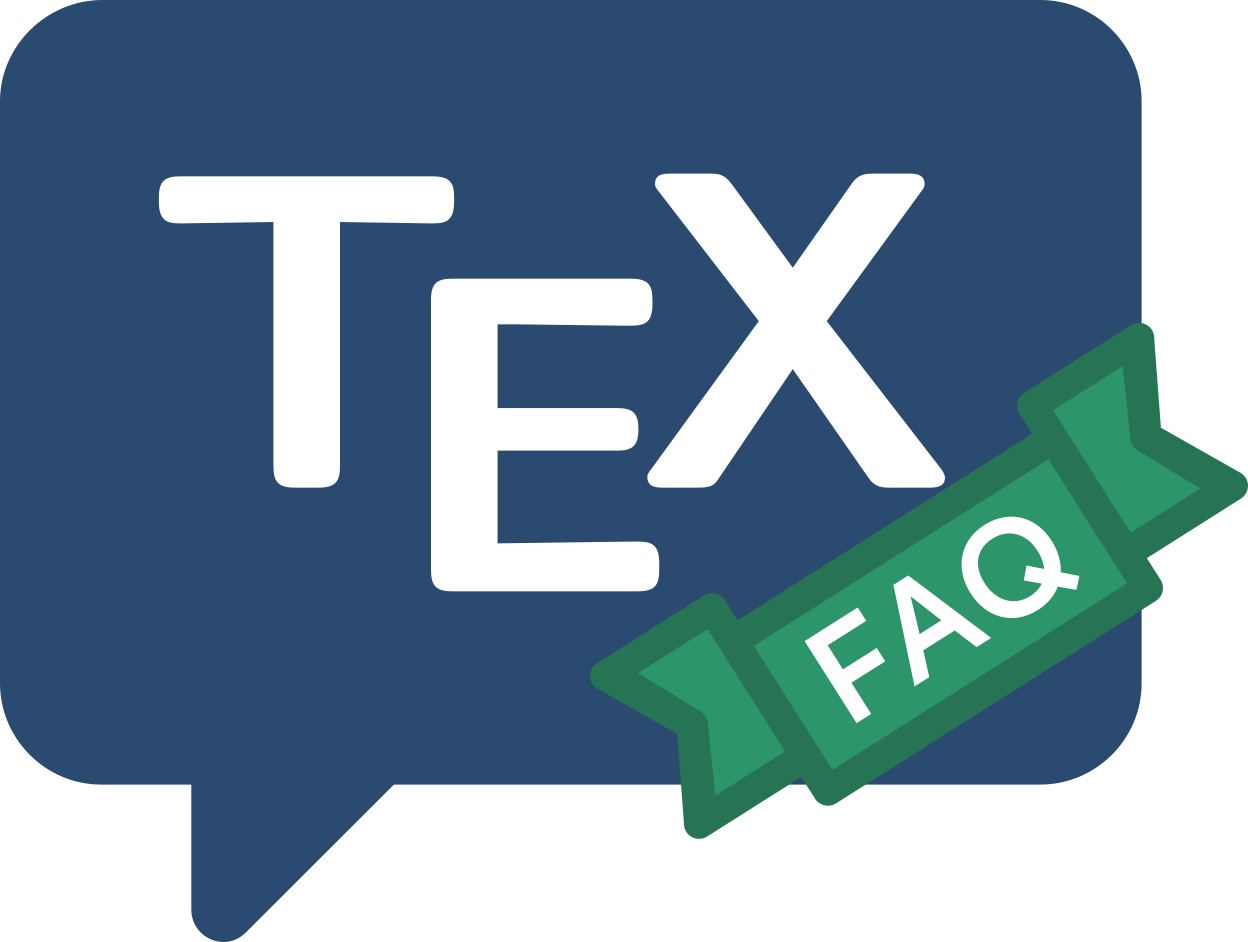
Frequently Asked Question List for TeX
Background
What are XeTeX and LuaTeX?
The standard pdfTeX engine is fully backward-compatible with Knuth’s TeX. As such, it remains an 8-bit system using specialist font metrics. In contrast, the engines XeTeX and LuaTeX are both Unicode-based and able to load standard system (OpenType) fonts. Internally, they differ in approach: the same outcomes are reached using very different philosophies. There are advantages to the user in each approach.
XeTeX
XeTeX is a Unicode TeX engine which can load
system fonts directly using the HarfBuzz library, which is built in. To do
this, the \font primitive is extended. In order to support these major
concepts, a range of TeX primitives are extended. For most LaTeX end users,
these subtleties are transparent, with the LaTeX kernel and
fontspec package providing interfaces.
Like Knuth’s TeX, it does not directly produce PDF output but rather works
via an intermediate format, XDV (eXtended DVI). Unlike the classical
DVI format produced by TeX, XDV files cannot be viewed directly, and
are normally converted directly to PDF as part of the xetex run. (The
conversion itself is carried out by xdvpdfmx.)
LuaTeX
LuaTeX consists of a TeX-like engine with a Lua interpreter “embedded” in it; the Lua interpreter has access to many of the data structures used for typesetting, so that the programmer may also interpolate chunks of Lua code into their (La)TeX macros, or as “call-backs” for use when the TeX-like engine does certain operations.
LuaTeX, like XeTeX, is a Unicode engine and is capable of loading system fonts. In contrast to XeTeX, the latter ability is not “built-in” to the engine itself, but is added using Lua code. This possibility to modify the behaviour of the engine at the “user” end makes it particularly powerful.
Whilst there are some (deliberate) differences between the behavior of LuaTeX
and that of Knuth’s TeX (or pdfTeX), for most users, LuaTeX may
be used as a drop-in replacement. For most LaTeX end users, the subtleties are
transparent, with the LaTeX kernel and
fontspec package providing interfaces.
ConTeXt Mark 4 (the current version) requires LuaTeX: this is again transparent to users.
FAQ ID: Q-xetex-luatex
Tags: xetex–luatex
Last updated: 2018-05-25